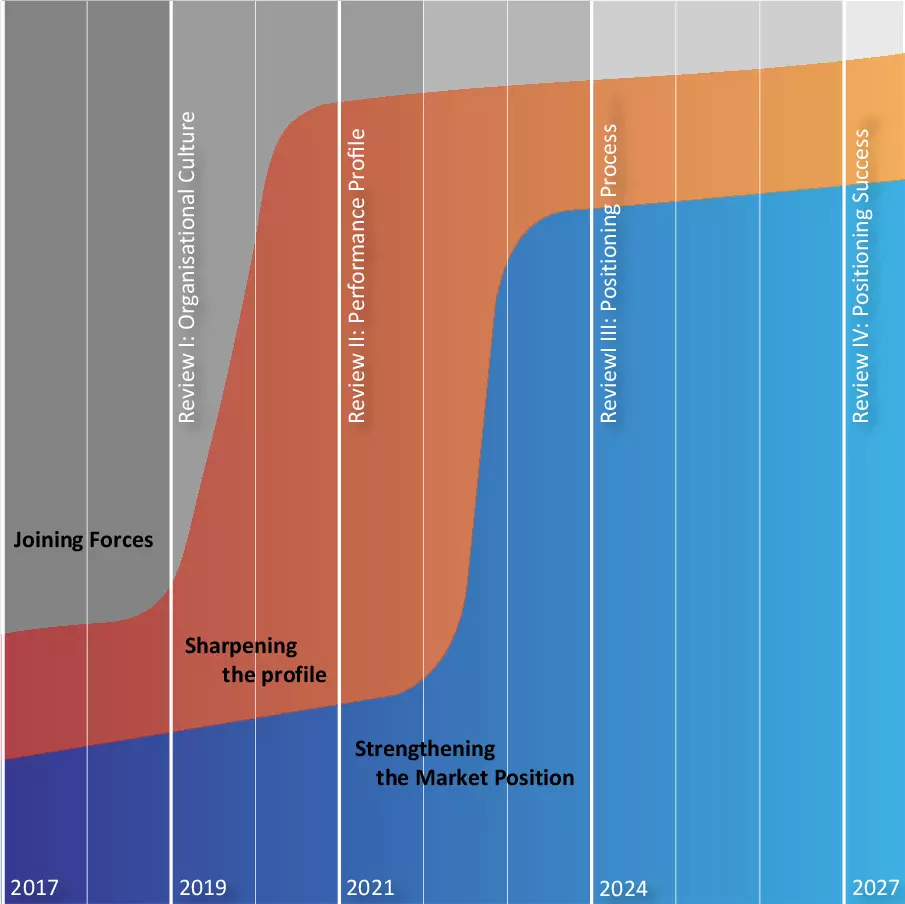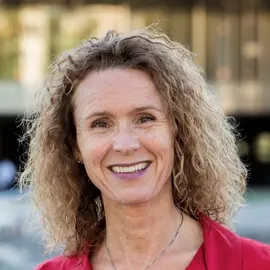Quality at the School of Applied Linguistics
Ensuring, reviewing and further developing quality is an iterative and discursive process. The topic is thus very much in keeping with the field of applied linguistics itself. Our School thrives on its diversity and endeavours to be more than the sum of its parts in everything it does, both internally and externally. This necessitates a conscious focus on quality.
As a School within a university that sees itself as rooted in the European culture of inquisitiveness, it is essential for us to systematically scrutinise our actions. The School’s objective is to implement its quality culture in its daily work as a matter of course. Reflection loops make it possible to enhance the School’s organisational maturity on an ongoing basis, ensuring organisational learning and a high level of quality.
The framework here is formed by the ZHAW Quality Strategy 2015–2025. Everyone at the School is jointly responsible for quality development and assurance, while responsibility for guiding this process lies with the Dean and the School Management. The School Management thus develops and decides on the tools and measures for implementing the ZHAW Quality Strategy. The quality officer provides assistance in an advisory and coordinating capacity and supports the Dean and the School Management in further developing the tools and measures.
Implementation of the Quality Strategy 2015–2025
The implementation of the Quality Strategy is based on the School strategy and its three stages, namely consolidating strengths, fine-tuning the School's profile and strengthening the School's market position. Taking account of the university’s 20 quality requirements and 70 quality criteria, the School of Applied Linguistics has defined and implemented processes, evaluation tools and measures for the individual quality areas.
Peer reviews
The institutionalised peer review processes play an important part in implementing the Quality Strategy. In keeping with the School strategy and its implementation in three stages – consolidating strengths, fine-tuning the School's profile and strengthening the School's market position – the School of Applied Linguistics has selected a staged approach for the performance of its peer reviews. After each review is completed, measures are developed to implement the feedback and suggestions for improvement that have been received. In addition to this, reflection loops aim to enhance the School's organisational maturity on an ongoing basis, ensuring organisational learning in the process.
Reviews I, II and III are earmarked to take place in the period between 2019 and 2025 and will together address all quality areas as well as 56 quality indicators from the ZHAW Quality Strategy. Review IV (2027) is set as the starting point for the next review period. Its quality criteria and requirements will be specified in detail on the basis of the experiences gained from the three preceding reviews.
Quality in academic programmes
The academic programmes at the School of Applied Linguistics combine scientifically precise reflection with career-oriented application. They qualify students to master linguistic and social challenges encountered in professional practice by equipping them with appropriate mindsets, tools and skills that will serve them both now and in the future.
To ensure quality, various evaluation procedures are used to assess the content focus of the curricula, the management and administration of academic programmes and the individual teaching activities. The programme directors are responsible for reviewing and further developing quality within the academic programmes at an organisational level.
Continuing education at the School of Applied Linguistics offers skills- and research-based continuing education formats in the areas of interpreting and translation, (intercultural) communication, media, languages, technical communication and terminology. The courses adopt the transdisciplinary perspective of applied linguistics in addressing current issues and future challenges from the world of practice.
Quality assurance is based on the specifications contained in the continuing education sub-strategy of the School of Applied Linguistics. This involves assessing both the content focus of the continuing education courses and the individual teaching activities. The evaluation of individual courses as well as personal discussions with the participants of continuing education courses are an integral part of this process.
Quality in research and services
In our areas of specialisation and research, our researchers work together with practitioners to develop solutions to socially significant problems where communication and language matter. The knowledge generated in this way is incorporated in our academic programmes.
Research and service quality is ensured by processes and measures that strengthen the close link between these areas of activity and the realms of training and continuing education. These processes and measures also intensify networking and exchange relating to our research and service activities both inside and outside the School. The guidelines for professorships and the policy for research associates and assistants are pivotal to the evaluation of quality in the area of research.
Quality in communication
The Communications team at the School of Applied Linguistics is responsible for the strategy, conception and planning of communication and marketing activities. On the basis of the School strategy, they formulate and convey messages to internal and external stakeholders in accordance with the communication sub-strategy.
Clearly defined areas of competence and the associated assignment of responsibilities for individual topics contribute to ensuring a high level of quality in the area of communication, as does the close cooperation with all of the School's organisational units. The regular evaluation and introduction of new tools, formats and channels also ensure the innovative production of modern communication that is fit for the future and ahead of the curve.


